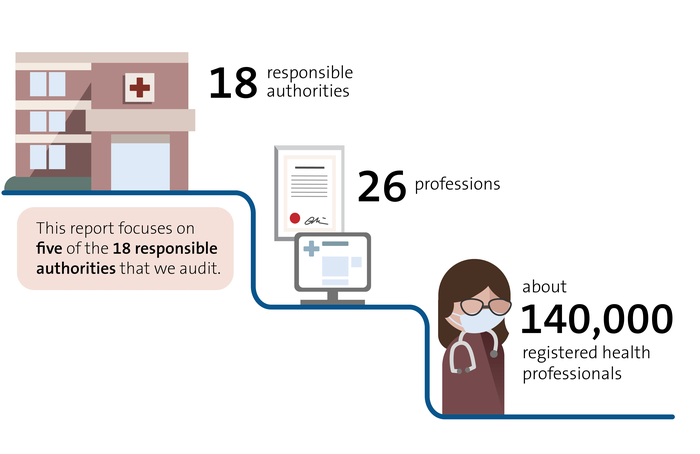Our insights into five health regulatory authorities

What are health regulatory authorities?
There are 18 authorities in New Zealand responsible for registering health practitioners and certifying that those practitioners remain competent to practise. They also carry out other functions, such as setting clinical and cultural competence standards for practitioners and managing complaints about their conduct and competence.
Together, they oversee a workforce of about 140,000 registered practitioners.
The Auditor-General provides independent assurance to Parliament and the public that the authorities are fairly reporting on their financial performance and, where applicable, their service performance.
This report focuses on five of the larger responsible authorities and makes four recommendations to improve how the authorities report on their performance.
In this report
About the responsible authorities
We describe what the 18 authorities do, how they are funded, and how they deal with complaints and notifications about the behaviours, skills, and abilities of those in the professions they regulate.
Independent performance reviews
To provide independent scrutiny of their performance, the Ministry of Health has the mandate to carry out periodic performance reviews of the responsible authorities. This Part discusses the results of the most recent reviews.
Results from our audits and financial trends
This Part discusses the results of our audits of five of the authorities. Most responsible authorities collect revenue by charging annual practicing certificate fees. They also collect revenue through disciplinary levies and recoveries and other income, such as interest earned from investments or cash reserves.
